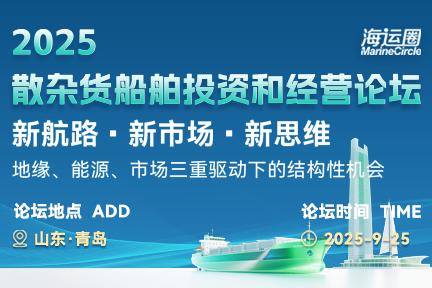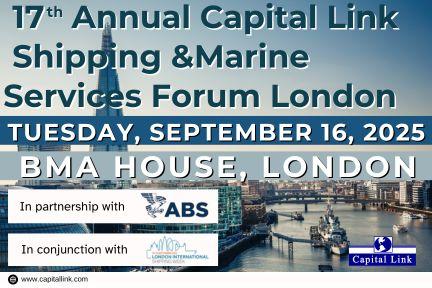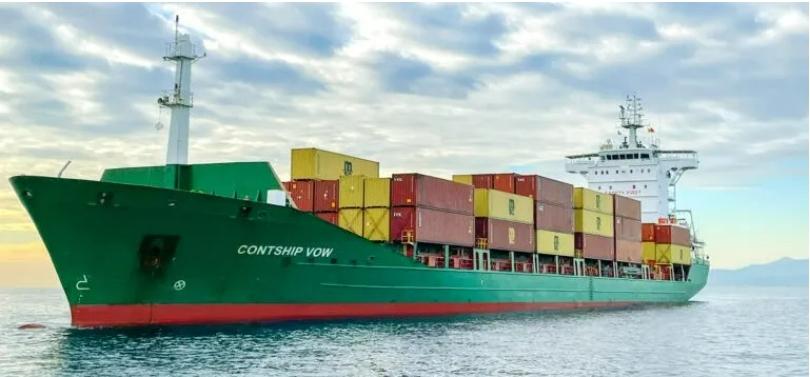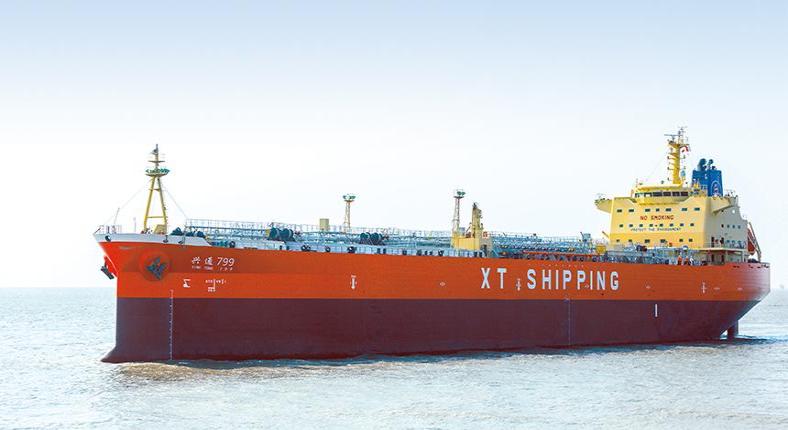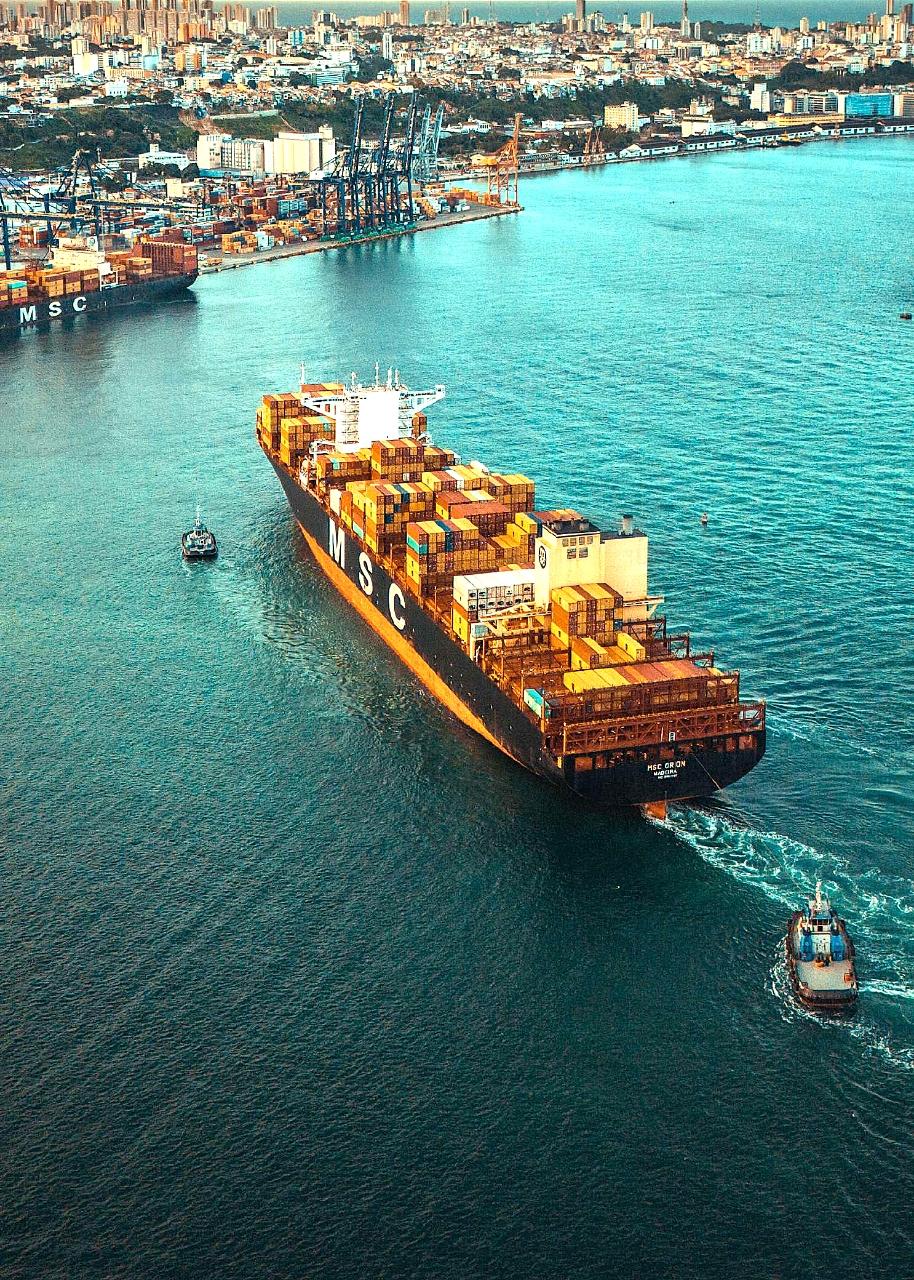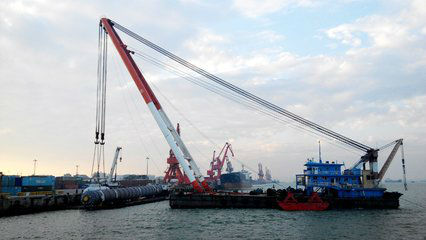
整理了这么多,最终的目的是学以致用。中国有古话,活学活用,举一反三。在之前众多关于停租,索赔,合约解释的文章的基础之上,碰到一般争议,应该都能顺利解决,如果不能,那就是还没领悟透彻。
笔者对那种拿名人或者名人书籍来压人的行为素来反感,前段时间有一京城来的,没说两句就说,你们去研究一下杨老的那本损失的书就明白了,看起来好像很牛X的样子,但笔者认为这是种不负责任的说法,如果笔者也说,你去研究一下《McGregor on Damages》就知道什么是损害赔偿了,那说了等于没说一样,没有人会去翻这些动辄几千页的书籍。
京城来的那位一开始说看了三遍,后来说三年前看了三遍,再后来说没完全理解。如果一个人心都不存,不尊重别人,靠看似乎所谓高级的反语来攻击别人,那么这人基于没什么希望了,切不可交这种人。对于这种不讲原则的人而言,今天可以哥们义气,让你1万;明天也绝对可以背后坑你10万。
快跑题了,现在言归正传。对于带吊的船,吊的状况就显得非常重要,如果租约明确规定需要用船吊来装卸货作业,但吊损坏了导致了装卸货延误,给承租人造成了损失,那么不管租约中是否有明确规定吊损坏期间是否可停租,打起官司来,相信法官会采纳衡平法原则来作出公平的裁决。
前几天,有人来咨询关于船吊的问题,承租人安排去的港口,对船吊要求过高,导致被移到锚地进行修理,然后由遭遇压港,在锚地等待了较长时间。争议由此产生,在锚地修理好船吊之后等待的时间是否能停租。
因为没有看到全部的租船合同,因此只能凭借当事方所提供的信息及合同条款来做判断。船的吊在别的港口装卸货作业都没有问题,但是承租人安排去卸货的这个港口,主要是卸粮食的,属于粮食专用码头;如果有粮食的船来了,别的船都得腾出来,移到锚地,让粮食船先卸。出租人的船在卸货的过程中,码头方以船吊在起吊货物后,不能保持货物在空中静止不动超过1分钟,不够安全,然后需要移到锚地先修理。
接下来别的船靠上去卸货,出租人随即找岸工修理,但修理之后,因为压港,只能继续在锚地等泊。在修理之后,对于继续等泊是否可停租有争议,出租人认为应该起租,承租人认为应该一人一半。
出租人于是找笔者给意见,其实笔者是非常乐意给各种各样的意见供参考。在给了初步在修理好之后不可停租的意见之后,出租人收到了承租人如下答复:
GOOD DAY!
AFTER CONSULTANT FROM TRIBUNALS & ARBITRITORS, OURLEGAL DEPARMENT COMMENTS ASF:
1. IN CASE THE CHARTERHAS NO ACTUAL LOSSES, THE OWNERS NEED NOT BARE THE WAITING BERTH LOSS.
OWNER WELL KNOWNTHE FACT THAT THE VESSEL SHOULD BE COMPLETED HER DISCHARGING WITHIN THE FIRSTBERTHING DAYS DEFINATELY WITHOUT CRANE'S PROBLEM. CHARTERERS LOSSES/DAMAGESACTUALLY HAPPEND WHICH SHOULD BE BARED BY OWNERSACCORDINGLY.
TIME LOSS ANDSTEVEDORES/BARGES/TRUCKS STANDBY ARE THE ACTUAL LOSSES.
2.ACCORDING TO CP CLAUSE17 AND NYPE 46/23 AND "THE MARIKA M CASE": VESSEL'S CRANEREJECTED BY THE PORT AND STEVEDORES DUE TO THE BREAK DEFICIENCY, THUS, ALL THETIME LOSS AND EXTRA EXPENSES DUE TO VESSEL'S DEFICIENCY SHOULD BEOWNER'S ACCOUNT AND CHARTERERS HAVE RIGHT TO DEDUCT THE HIREPAYMENT DIRECTLY.
3. OWNESRS SHOULD WELLUNDERTOOD THAT ALL OF 4 CRANE DEFICIENCIES WERE EXIST ON THE TIME OF DELIVERY AND THECONDITIONS FURTHER APPROVED BY THE REPAIRING WORKS OF WORKSHOP.
AS ABOVE MENTIONED,THEHIRE WAS OBERPAID.
BEST REGARDS
才几个小时就承租人就已经咨询了法官和仲裁员,然后还给出了法律意见。这不明摆着吓唬人吗?笔者不是厦大的,而是海大的,所以承租人所谓的法官律师意见对笔者没有任何约束力。
首先看承租人第一个观点,认为货还没卸完,被移到锚地,所以有损失,那么出租人应该承担。如之前文章提到的,不是任何索赔都可以从租金中直接扣减的;承租人和出租人交涉的是,修理好之后停租与否的问题,如果承租人想索赔损失,那么只能是和出租人说,索赔损害赔偿,即claim damage,而不是要求停租。显然,出发点法律错误。法官和仲裁员显然不可能犯这种如此低级的错误。
第二个观点是引援了The“MARIKA M”案,但是这个案子是涉及船舶搁浅,然后在起浮后,因压港无法靠泊的问题,和船吊的争议并不相关。在该案中,第15条的停租条款描述如下:
15. That in the event of the loss of time from deficiency and/or default of men or stores,fire, breakdown or damages to hull, machinery or equipment, grounding, detention byaverage accidents to ship or cargo, drydocking for the purpose of examinationor painting bottom, or by any other cause preventing the full working of thevessel, the payment of hire shall cease for the time thereby lost; and if upon the voyagethe speed be reduced by defect in or breakdown of any part of her hull,machinery or equipment, the time so lost, and the cost of any extra fuelconsumed in consequence thereof, and all extra expenses shall be deducted fromthe hire.
仲裁员裁定认为,在搁浅起浮后,等泊的时间不是由于搁浅导致的,也不是由于由此损失导致的,承租人得支付起浮后的租金。
The arbitrator held that such time was not lost "from" thegrounding nor "thereby" but stated his award in the form of a specialcase for the opinion of the Court.
Parker法官在经过分析后认为,他得出了与仲裁员所获得一致的结论,该仲裁员的裁决令人钦佩,他不打算增加比已做的更多的事情。
仲裁员对这个争议的回答是,承租人在整个期间对出租人负责。Parker法官以同样的意义回答这个问题,因此主要裁决必须成立,承租人无权停租,需支付租金。
I reach the conclusion that was reached by the arbitrator whose award admirably covers the ground. Ido not propose to add any more than I have done.
The answer to that question, given by the arbitrator, was that they are liable to the owners during the whole of the period. I answer the question in the same sense and accordingly the primary award must stand.
笔者很难理解,承租人为何引援这个判例,是想说明,在船吊修理好之后不得停租?除此之外,想不到任何别的理由。
第三个观点是认为船吊有缺陷不足。
但船吊的不足是否赋予了承租人停租的权利呢?deficiency和breakdown是有显著区别的。比如船吊设计安全负荷为30吨,在起吊29吨的货物时,起吊的速度比较忙,比设计的速度慢了卸,这种情况下不能说吊breakdown了,出故障损坏不能用了,而只能说是deficiency,有不足,但还是能用。承租人想必也很清楚吊的状况,港口特殊要求,船吊本身能用,只是达不到这个港口的过高要求,属于deficiency,不属于breakdown。因此,承租人的声称经过询问方和仲裁员,其律师给出了船吊有deficiency的结论。
现在回头来看租船合同条款对船吊的规定,如下:
18- IN CASE OF BREAKDOWN OF VSLGEAR/CRANE, VSL OFF HIRE PRO RATA AGAINST HOLDS AFFECTED, CHARTRS OPTION TOREQUEST HIRE OF SHORE CRANE / FLOATING GEAR/CRANE, ALL RELATIVECOST/LOSS/TIME/STEVEDORE STANDBY COST, ETC TO BE FOR OWR ACCT. HOWEVER OWNERSARE TO BE RESPONSIBLE FOR HIRING ANY SUCH EQUIPMENT/SERVICES- AND WILL ONLY BEIN THE CASE THAT HOLDS CANNOT BE WORKED BY SHIPS CRANES.
租船合同第18条,明确约定的是,breakdown,而不是deficiency。而NYPE93第17条,其中关于机器设备可停租的描述是breakdown of, or damages to hull, machinery or equipment,这里说的是breakdown 或 damages;而关于deficiency说的是船员,因此承租人无法把发发生的事项引入到停租条款中来,承租人没有权利停租。
鉴于此,笔者草拟如下电邮,让出租人转发给承租人。
DearSir,
Goodday!
Ownersrefer to charterers’ message, but regret that Owners are unable to acceptcharterers’ last allegation.
Foravoid any unpleasant situation, Owners wish to draw charterers their keen attention to below comments.
1、 Off hire
Pursuantto clause 17 of NYPY93, Which provided:
In the event of loss time from deficiencyand/or default and/or strike of officers or crew, or deficiency of stores ,fire,breakdown of, ordamages to hull, machinery or equipment, grounding, detention by thearrest of the Vessel ( unless such arrest is caused by events for which the Charterers,their servants, agents or subcontractors are responsible), or detention byaverage accidents to the Vessel or cargo unless resulting. from inherent vice,quality or defect of the cargo, dry docking for the purpose of examination orpainting bottom, or by any other similar cause preventing the full working ofthe Vessel , the payment of hire and overtime, if any, shall cease for the time thereby lost.
It’s clear that this is net time lost clause. In respect of net time lost clause,charterers may refer to 《Time Charter》Chapter 25-Off hire clause, 25.56 as below:
25.56 Line 99 of New York Produce formprovides that where there is loss of time from an off-hire event, the paymentof hire shall cease “for the time thereby lost”. Therefore, in order to claimoff-hire under Clause 15 of the New York Produce form, the charterers have to show not only that there has beena loss of time in the sense identified above, but also the amount thereof.Clauses of this kind, which allow the charterers to deduct hire equivalent tothe amount of time lost, rather than for the whole of a defined period, arecalled ‘net loss of time’ clauses. The Baltime form also contains a net of lossof time clause. So, too, does the Shelltime 4 form (although it defines theoff-hire period during which the net loss of time is off-hire more generouslyto the charterers than under the New York Produce or Baltime clause).
Thecharterers have to show not only that there has been a loss of time in thesense identified above, but also the amount thereof, as highlight.
Assume the charterers well aware that the vessel stay at anchorage was waiting for her berth,therefore there is no any time lost. On the other hand, the full working of the vessel was not prevented. In the present case, the service was required by thecharterers was not to berth immediately, but to stay at anchorage to wait forberth.
As JusticeStaughton said in The Berge Sund [1993] 2Lloyd’s Rept.453 case:
The question is not what the charterers hoped or expected their orders would be, but what service they actually required.
And JusticeBurto said The TS Singapore [2009] 2Lloyd’s Rep.54 case:
So if the next operation that the ship needs to undertakeis to sail to the discharge port, but she is unable to do so, then the ship isbeing prevented from working. On the other hand, if the situation is that theship is unable to sail, but the next operation required of her is to remain atberth and discharge, the full working of the vessel has not been prevented.
The next operationrequired of the vessel is to remain at anchorage, the full working of thevessel has not been prevented.
Now, As Justice Kerrsaid in The Mareva A.S.[1977] 1 Lloyd’s Rep.368 atpage 381:
The object is clear. The Owners provide the ship and thecrew to work her. So long as there are fully efficient and able to render tothe charterers the service then required, hire is payable continuously. But ifthe ship is for any reason not in full working order to render the service thenrequired from her, and the charterers suffer loss of time in consequence, thenhire is no payable for the time so lost.
Thevessel are fully efficient and able to render to the charterers the service
required, stayat anchorage to waiting for berthing, hire is payable continuously.
Basis above authorities, the charterers arenot entitled to place the vessel off hire.
Anyhow, In spirit of good cooperation, Ownerswish to cite below additional cases of time lost for charterers’ easyreference.
1) London Arbitration 10/07 (2007) 719 LMLN 1
The arbitrators that the chartererscould have no complaint in relation to the position where the ship was at theanchorage. They and/or the receivers knew where she was and made no requestthat she shift. There was no loss of time, for the reasons given by the owners.The repairs caused no delay: even if they had not taken place, dischargingwould not have started any sooner. Accordingly, the off-hire claim had to fail,as did the charterers’ claims for related extra expenses.
2) London Arbitration 9/08 (2008) 748 LMLN 3
Whether vessel off-hire due to crane breakdowns
The vessel’s cranes suffered a series of breakdowns at the dischargeports, during which time they ceased to be at the disposal of the charterers’stevedores. The charterers, invoking clause 21, placed the vessel off-hire atvarious times at a ratio of ¼th of the total of the periods that the breakdownslasted.
The owners said that clause 21, like clause 59, was a “net loss of time”provision and submitted that since no time was lost to the charterers, thevessel was not off-hire.
The charterers maintained their entitlement to deduct hire pro-rata,contending that clause 21 was to be read in conjunction with clause 15 and thatthe breakdowns did, in fact, slow discharging operations down and cause themadditional expense.
Held , that on the evidence no time had actually been lost to thecharterers as a result of the crane breakdowns. Either the vessel was otherwiseoccupied during the periods of incapacity or work in the holds affected by thedefective cranes was completed well before the work in the holds that wereunaffected by the failure of the cranes. Moreover, the specific provisions ofclause 21 prevailed over those of clause 15. Accordingly, the vessel was notoff-hire.
Hence that once thevessel shift to anchorage, she is to wait for the berth, There is no any timelost thereby, and thus the charterers are not entitled to place the vessel offhire.
2、 The “Marika M” case
Charterersrely on The “Marika M” case, but inthat case, The vessel grounded and missed allocation of berth, After vesselrefloated but had to wait for berth. The Arbitrators held that the charterersshould be liable for Owners, and Justice Parker uphold arbitrator’ decision andhold that the charterers are not entitled to place off hire.
It’sno matter and not support present case.
3、 Remoteness
Charterers’alleged they are entitled to claim damages, but this alleged damaged isremoteness, unrecoverable totally.
Owners wish to citethe authority from the speech in Hadleyv. Baxendale (1854) 9 Ex. 341, in that case, Baron Alderson said:
Now we think the proper rule is such as the present is this: Where twoparties have made a contract which one of them has broken, the damages whichthe other party ought to receive in respect of such breach of contract shouldbe such as may fairly and reasonably be considered either arising naturally,i.e., according to the usual course of things, from such breach of contractitself, or such as may reasonably be supposed to have been in the contemplationof both parties, at the time they made the contract, as the probable result ofthe breach of it. Now, if the special circumstances under which the contractwas actually made where communicated by the plaintiffs to the defendants, and thusknown to both parties, the damages resulting from the breach of such acontract, which they would reasonably contemplate, would be the amount ofinjury which would ordinarily follow from a breach of contract under thesespecial circumstances so known and communicated. But, on the other hand, if these special circumstanceswere wholly unknown to the party breaking the contract, he, at the most, couldonly be supposed to have had in his contemplation the amount of injury whichwould arise generally, and in the great multitude of cases not affected by anyspecial circumstances, from such a breach of contract. For such loss wouldneither have flowed naturally from the breach of this contract in the greatmultitude of such cases occurring under ordinary circumstances, nor were thespecial circumstances, which, perhaps, would have made it a reasonable andnatural consequence of such breach of contract, communicated to or known by the defendants. The Judge ought, therefore, to have told the jury, that,upon the fats then before them, they ought not to take the loss of profits intoconsideration at all in estimating the damages. There must therefore be a newtrial in this case.
The vessel’s cranes were full working in last previous calls, but just due tospecial requirement from current port, as alleged after lift should keep 1minute otherwise is not safe enough. This requirement is no matter with cranes deficient and breakdown. The delay was caused by this special requirement from charterers’ side. Before fix this vessel, The charterers never informed theOwners this in advance, which was not in Owners’ contemplation.
Onthe other hand, As Owners note that the berth is not designed for this kind cargo, should be for grain vessel. Once there is grain vessel coming, thevessel have to vacate the berth and shift to anchorage. Assume for this reason,the vessel was ordered to shift to anchorage.
Furthermore, Owners wish to remind that as Lord Bucknill said in Royal Greek Government v. Ministerof Transport (1948) 82 Ll.L.Rep. 196, at page 199 as below:
The cardinal rule…in interpreting such a charter-party as this, is that the charterers will pay hire for the use of theship unless he can bring himself within the exceptions. I think he must bring himself clearly within the exceptions. If there is a doubt as what the words means, then I think those words must be read in favour of the Owners because the charterers is attempting to cut down the Owners’ right to hire.
Which also may refer to 《Time Charter》-Chapter 25-Off-hireclause, 25.4.
25.3 Two general principles apply to such clauses.
25.4 First, the burden is on the charterers to show that the off- hire clauseoperates in the relevant circumstances. Bucknill, L.J., said in Royal Greek Government v. Minister of Transport (1948) 82Ll.L.Rep. 196, at page 199: “the cardinal rule. . . in interpreting such acharter- party as this, is that the charterer will pay hire for the use of theship unless he can bring himself within the exceptions. I think he must bringhimself clearly within the exceptions. If there is a doubt as to what the wordsmean, then I think those words must be read in favour of the owners because thecharterer is attempting to cut down the owners’ right to hire.” Similarly, Rix,L.J., in The Doric Pride [2006]2 Lloyd’s Rep. 175, at page 179, said, “under a time charter the risk of delayis fundamentally on a time charterer, who remains liable to pay hire in allcircumstances unless the charterer can bring himself within the plain words ofan off- hire provision”
Consideration no any special clause stipulated in this charterparty that the Owners should hold responsible for this delay at anchorage, Thus this charterparty should be read in favour of Owners, but not charterers.
As the charterers noted that Owners have exercised their lien under clause 23 ofNYPE 93 form, to lien upon all cargoes and all sub-freights and/or sub-hire for any amounts due under this Charter Party.
If Owners failure to receive charterers’ confirmation they will refund illegal deduction and arrange FULL hire within today, Owners will be left no choice butto send below lien notice to all parties concerned.
It’s well established that the vessel will be remain on hire if lien is valid,Owners confidential that this lien is valid, the hire already due on ___.
Owners’all rights are fully and expressly reserved.
Re:MV XX- Fixture Note Dated xx.xx.2018
Fyi, We are represented as ______, and our time charterers________ they had failed to pay us sufficienthire, and already due on______.
We have to stop discharge to exercise lien upon all cargoes and all sub-freights and/orsub-hire for any amounts due under this Charter Party.
You will appreciate that______ has definitely right to lien on the cargoes, sub-freights and orsub-hire in accordance with the charterparty and authorities.
You are hereby calledupon to pay any sub-freight/sub-hire and balance to us, banking details willrevert later.
If you ignore our liennotice and demand and do not pay the sub-freight/sub-hire and balance to_______, you will be held fully responsible and will have to pay thesub-freight/sub-hire twice.
If you have any doubt,we suggest you approach your Counsel for legal advice.
Please confirm that you will pay the sub-freight/sub-hire to _____ as above and provide us with copy ofthe voyage charterparty for the current voyage.
Your kind consideration andcooperation will be highly appreciated.
We are looking forward to hearing from you.
这封电邮一个小时内完成,笔者自认为比承租人所谓的询问过法官,仲裁员,经过法律部门给出的简短,但有好多漏洞的电邮更具有说服力。这封电邮包括本篇对笔者而言,没有什么价值;但相信对于出租人而言,应该值好几万美金。除非有相反的规定会事实,否则船吊因为港口过高要求,而被莫名其妙要求移到锚地修理,这种非船吊本身的问题所造成的时间损失,非可预料得到,损失可归于特别损失,即遥远性损失,承租人不可追偿。而在锚地期间,由于港口压港,导致无法靠泊卸货,船舶完全运作没有受到阻碍,能提供承租人所需要的服务,不属于列明的可停租事项,因此承租对于此期间的时间损失不可停租。
笔者一直告诫出租人一定要咬定,船吊并没有breakdown,能完全运作。只是港口过高要求,有问题也仅限于承租人自己认为的存在deficiency。如果可归于breakdown,那么依据合同相关条款,将构成可停租事项,损失将由出租人自己承担。
最后,再来看看这个breakdown的解释问题。
在Olbena SA v Psara Maritime Inc TheThanassis A (1982) LMLN 68案中,涉及码头被它船损坏导致船舶无法靠泊。Robert Goff法官认为,毫无疑问,在适当的情况下,“机器故障”这个词在使用时可能会受到口语表达“故障”的限制,例如,与汽车故障有关。但是发现很难将这个表达方式应用于机器以外的其他设备。在例如油码头的情况下,相关设备不仅可以包括机器,而且可以包括例如管道。在Robert Goff法官看来,在油轮租船合同的背景下,管道可以合法地称为设备在供应商或货物收货人的工厂内或附近。当理解“机器或设备故障”时,他们必须在当前的情况下超越机器由于其固有缺陷而发生故障的普通例子。如果在本条款中出现设备故障,可以看到没有理由不应该包括例如管道中的破损,在这种情况下,很难明白为什么故障应该限制在这个范围内条款涉及机器或设备的固有缺陷。 .故障的原因并不重要。它可能是一些外部因素,也可能是机器或设备的内部缺陷,但是如果机器或设备不起作用,并且可能出现故障,则机器或设备出现故障。
No doubt the words "breakdown of machinery" might be limited, inthe appropriate context, to the colloquial expression "breakdown"when used, for example, in relation to the breakdown of a motor car. But I findit very difficult to apply that expression in relation to equipment other thanmachinery. In the case for example of an oil jetty, the relevant equipment mayinclude not merely machinery, but, for example, pipes; and it seems to me thatpiping can legitimately be called equipment in or about the plant of thesupplier or consignee of the cargo in the context of a charter-party for atanker. As I read the words "breakdown of machinery or equipment"they must in the present context go beyond the ordinary example of a machinebreaking down due to its own inherent defect. Where there has been a breakdownof equipment in the context of this clause I can see no reason why it shouldnot include, for example, a breakage in a pipe, and in those circumstances itis difficult to see why breakdown should be limited in this clause to somethinginvolving an inherent defect in the machinery or equipment.
. . .. The cause of the breakdown is immaterial. It could be some externalagent, or it could be some internal defect in the machinery or equipment, butif the machinery or equipment does not function, and possibly also if itmalfunctions, then there is a breakdown of the machinery or equipment.
在PORTOLANA COMPANIA NAVIERA LTD. v. VITOL
ANOTHER (The "Afrapearl ") [2004] 2Lloyd’s Rep.305案中,船舶在卸货过程中,涉及油管泄露,需要修理的问题。上诉院的Clarke勋爵在第313页判决书中说到,在我看来,应该区分故障和原因。Robert Goff法官的判断是正确的。正如我所看到的,当它不再起到管道的作用时,会发生排放管道等设备的故障。造成故障的原因可能是管道中有孔,或者这里是法兰上的一个缝隙,它会阻止管道作为排放管道工作。这个洞当然可能以许多不同的方式引起,并且有许多不同的原因。其中一个原因通常是有关设备操作的人员(这里是管道)的错误引起的。
It does seem to me that a distinction should be drawn between a breakdownand its cause. To my mind Mr. Justice Robert Goff was right to draw thatdistinction. As I see it a breakdown of equipment such as the discharge pipeoccurs when it no longer functions as a pipe. The cause of the breakdown may bea hole in the pipe or, as here, a gap in way of the flange which prevents thepipe operating as a discharge pipe. The hole may of course be caused in anumber of different ways and for a number of different reasons. One of thosereasons will commonly be the fault of someone concerned with the operation ofthe equipment, here the pipe.
在第315判决中,Clarke勋爵继续说,在这种情况下,他不能同意法官认为
可以通过询问密封舱所属的位置或承租人的责任来检验这一点。我同意他的观点。合同第8并没有提到任何有关故障的必要性超出承租人的控制范围。然而,我不同意在这种情况下,商业人士会反对这样的建议,即在这个租船合同方之间,以及在出租人和承租人之间,这里所发生的事情可以被恰当地描述为设备的故障。在我看来,他们可能会区分由租船人的过失造成的“故障”和由收货人的过失造成的故障。由于原因,商业人士在我看来会反对一个建议,即承租人应该只支付一半的滞期费用,如果这种损坏是由于承租人的过错而造成的,并且该条款将被解释为具有该效力,或者该条款将是默示。另一方面,我认为没有理由为什么商业人士不应该同意由于收货人的过错而不是承租人的过失造成的一半的滞期费。
In these circumstances I am unable to agree with the Judge that one cantest the point by asking what would have been the position here had the sealinebelonged to or been the responsibility of the charterers of the vessel. I agreewith him that the exception in cl. 8 does not import any reference to anecessity for the relevant breakdown to be beyond the charterers' control.However, I do not agree that commercial men would in such circumstances demurto the suggestion that what here occurred could properly be described, in thecontext of this charter-party and as between owners and charterers, as abreakdown of equipment. In my opinion they would be likely to draw adistinction between a "breakdown" caused by the fault of thecharterers and a breakdown caused by the fault of the consignee. For thereasons already given commercial men would to my mind demur to the suggestionthat charterers should pay only half demurrage where the breakdown was causedby the charterers' fault and the clause would be construed to have that effector a term to that effect would be implied. On the other hand I see no reasonwhy commercial men should not agree to half demurrage where the breakdown wascaused by the fault of the consignee but not of the charterers.
在E D And F Man Sugar Ltd v Unicargo TransportgesellschaftGmbH [2013] EWCA Civ 1449(The“Ladytramp”)案中,在船舶抵达装货港前一周,当地代理告知出租人,发货人的码头发生火灾,代理后来说是承租人通常使用的码头,最初预定船舶要装货的地方。但火灾摧毁了将码头连接到仓库的输送带系统,当地专家认为该系统至少可以运行3个月。Tomlinson勋爵在第14段判决书中说到,在他看来,这些都不能说明“装货机械设施的机械故障”是什么意思。然而,更重要的是,Robert Goff法官处理下一个论点的方式,即对码头和油管的损害不应视为机器或设备的故障,而应视为对设施部分的完全破坏。在这方面,Robert Goff法官说:
“在这种情况下,我再次回到这个条款,我问自己,究竟发生了什么可以合理地描述为机器或设备故障的情况,根据我的判断,答案肯定是否定的。关于码头的损坏问题,我不明白怎样才能恰当地将其描述为机器或设备的故障。显然,码头不是机器,显然它不是设备,而且,完全破坏部分设施似乎涉及到在这种情况下,我并不认为所涉及的文字足以涵盖本案发生的事情,当我看到裁决时,我认为这是仲裁员自己采用的方法,因此,在这个简单的基础上,在我看来,Tomlinson先生的上诉肯定会失败。”
Tomlinson勋爵他只想补充一点,完全破坏一个设施的一部分不仅仅是一种破坏,它显然与机械故障有所不同,尽管同样明显地,机械故障可能导致全部或部分装货机械设施,无论是通过火灾还是通过其他机制。
None of this in my judgment casts verymuch light on what is meant by "mechanical breakdown in mechanical loading plants". Of rather morerelevance however is the manner in which Robert Goff J dealt with the nextargument, that the damage to the jetty and oil pipes should be regarded not asa breakdown of machinery or equipment but rather as a completedestruction of part of the facility. In that regard Robert Goff J said this:-
"In thosecircumstances, I turn back to the clause again, and I ask myself whether whatoccurred can reasonably be described as a case of a breakdown of machineryor equipment. In my judgment the answer must be in the negative. So far as thedamage to the jetty is concerned, I do not see how that can properly bedescribed as breakdown of machinery or equipment. Plainly the jettyis not machinery; plainly it is not equipment. Furthermore, completedestruction of part of the facility would appear to involve something more thana breakdown. In those circumstances I do not see that the words inquestion are wide enough to embrace what happened in the present case. As Iread the Award, I think this is the approach which the arbitrator himselfadopted. So, on that simple ground, it seems to me that Mr Tomlinson's appealmust fail."
I would only add that complete destructionof part of a facility is not only something more than a breakdown, itis plainly something different in kind from a mechanical breakdown , althoughequally plainly a mechanical breakdown mightlead to complete destruction of all or part of a mechanical loading plant,whether through fire or through some other mechanism.
在第15段判决中,Tomlinson勋爵提到了Clarke勋爵所说的,认为The
“Thanassis A”和The“Afrapearl”案都不是“火灾的结果是传送带系统发生机械故障”的权威。就我而言,我不认为那些当局有理由认为这里存在输送带系统的故障。仲裁员的查证是,传送带系统完全被破坏,在上诉法院批准的Robert Goff法官的方式,传送带系统涉及的不仅仅是故障。然而,在我看来,没有任何延伸想象中仲裁员的查证可以被视为机械故障之一。仲裁员唯一的认定是传送带系统被火烧毁。如果这涉及到故障,则不是没有更多的机械故障。正如Eder 法官正确地指出的那样,该条款涉及故障的性质。承租人的代表律师Yong先生的论点等于说如果机器不能工作,就已经存在机械故障。我不同意此观点。当然,唯一的认定是机器已经被火烧毁。
At first instance, [2003] 2 Lloyd's Rep 671, I considered itinappropriate to describe as a breakdown the gap in the flange whichpermitted a leak which delayed loading. The Court of Appeal disagreed however,in part and perhaps principally on the basis that the cause of the malfunctionwas irrelevant. At paragraph 21 Clarke LJ said:-
"It does seem to me that a distinctionshould be drawn between a breakdown and its cause. To my mind MrJustice Robert Goff was right to draw that distinction. As I see it a breakdown ofequipment such as the discharge pipe occurs when it no longer functions as apipe. The cause of the breakdown may be a hole in the pipe or, as here, agap in way of the flange which prevents the pipe operating as a discharge pipe.The hole may of course be caused in a number of different ways and for a numberof different reasons. One of those reasons will commonly be the fault ofsomeone concerned with the operation of the equipment, here the pipe."
However, to my mind the more relevant part ofthe judgment of Clarke LJ for present purposes is paragraph 10, where he saidthis:-
"It is not, as I see it, possible todefine the expression "breakdown of equipment in or about the plantof the consignee" in a vacuum. It is necessary to consider whether therewas such a breakdown by reference to the facts of that particularcase and in the context of the particular charterparty. Like any provision of acontract it must be considered in the context of the contract as a whole, whichin turn must be viewed against its factual matrix or surrounding circumstances."
So here, the emphasis must be on theparticular words used in the clause and the facts as found by the arbitrators.Neither The "Thanassis A" nor The "Afrapearl" areauthority for the proposition that the result of the fire was that there was amechanical breakdown of the conveyor belt system. For my part I donot consider that those authorities justify the conclusion that there was herea breakdown of the conveyor belt system. The arbitrators' finding isthat there was complete destruction of the conveyor belt system, which on theapproach of Robert Goff J, approved by the Court of Appeal, involves somethingmore than a breakdown .However, in my view, by no stretch of theimagination can the arbitrators' finding be regarded as one of mechanical breakdown .Thearbitrators' only finding is that the conveyor belt system was destroyed byfire. If that involves a breakdown it is not without more amechanical breakdown .As Eder Jrightly observed, this clause is concerned with the nature of the breakdown . MrYoung's argument amounts to saying that if machinery does not work, there hasbeen a mechanical breakdown .I do not agree. That is not so where theonly finding is that the machinery has been destroyed by fire.
这些判例及对Breakdown的解释问题,也可以参《Time Charter》Chapter 25 Off-Hire Clause, 25.29如下:
Breakdown to hull,machinery or equipment
25.29 Themeaning of the word “breakdown” was considered by the Court of Appeal in avoyage charter case,The Afrapearl [2004] 2 Lloyd’s Rep. 305 (
回到本文所说的争议中来,承租人说码头工人认为不够安全,因此需要对船吊进行维修,但这不是船吊本身的故障,船吊完全可用,只是承租人的雇佣工人认为不够安全。如Tomlinson勋爵拒绝那个案中承租人的代表律师Yong先生的论点,不能说如果机器不能工作,就已经存在机械故障。
但如果是船吊本身缺少维修,导致无法进行起吊作业,必须中断装卸货作业进行维修的话,那么笔者毫不怀疑,这种情况将可归于breakdown。如果是出租人方面的原因,比如出租人提供了不符规格的燃油,导致了机器损坏,需要修理,那么这种情况纵然可归于机器故障,但出租人可以追偿所有损害赔偿。这种情况如《Time Charter》Chapter 25 Off-Hire Clause,25.52如下所说:
25.52 If, contrary to what is suggested above, a ship isoff hire when prevented from working by circumstances for which the charterersare responsible, then there is an alternative analysis that may be applied: thelaw may treat the ship as off-hire but then allow the owners to claim hire backfrom the charterers as damages. This possibility is discussed below, atparagraph 25.75.
同时参《Time Charter》Chapter 25 Off-Hire Clause,25.49如下所说,如果任何时间损失是由于任何属于承租人负责的所造成的,那么将不可停租。
25.49 In the case which follows there is clear supportfor the somewhat narrower proposition that the charterers may not rely on anoff-hire clause when the working of the ship has been prevented by somethingwhich, under the charter, it was the charterers’ duty to supply.
Delay was caused to the Megna by faulty bunker coal, supplied by the charterers,heating dangerously. The off-hire clause provided: “That in the event of lossof time from… breakdown of machinery or damage to hull preventing the workingof the steamer for more than 24 consecutive hours, the hire shall cease untilshe be again in an efficient state to resume her service; or if breakdown ordamage occurs at sea, not resulting from the cargo, necessitating putting back,hire shall cease until steamer is again in the same position. …”
It was held that both parts of the clause were limited tobreakdown of machinery or damage to hull, and as neither had happened theclause did not operate. Greer, J., also said that the hire should not ceasewhere the loss of time had been caused by “anything for which the charterer isresponsible”, in this case their bunkers.
Nourse v. Elder Dempster (1922) 13Ll.L.Rep. 197.
因此,在这个方面上看,时间损失是由于承租人自己负责的,雇佣的装卸工人的问题所造成的,那么所用时间损失将可不停租。
(后记:完成于2018.05.06,如果案中的承租人或者其律师看到本文,欢迎私下沟通交流,但不会改变笔者的观点立场。)
海运圈聚焦专栏作者 Alex (微信公众号 航运佬)

 2018-05-07
2018-05-07 1830
1830 




